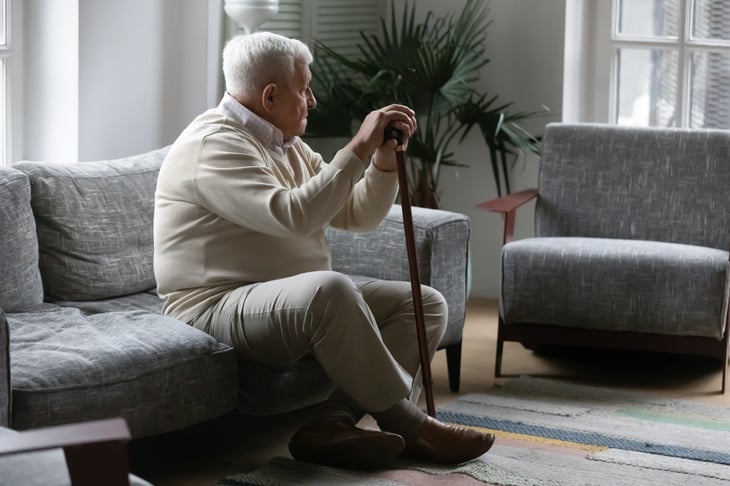
When you were young, chances are you dreamed of owning a large home with all the bells and whistles. But as life marches on, it’s not unusual to have more modest goals, including visions of a smaller home that better suits your needs.
You may decide to downsize before retirement. Or, maybe you are just looking for a simpler lifestyle. Parents often find there’s less need to maintain large homes after their children grow up and move away.
Choosing a smaller dwelling can reduce housing costs and eliminate many maintenance tasks, such as painting, cleaning and mowing. Fewer rooms make housekeeping an easier task. A smaller home also offers other hidden advantages.
Following are some unexpected benefits of downsizing your home in retirement.
1. It can become easier to relocate

Selling a home can be a hassle. You need to find a real estate agent, show the home to potential buyers and negotiate a price. If there’s a decline in the real estate market, you may not be able to sell the dwelling for full value — or to sell it at all.
If you downsize by selling your home and living in a rental unit, those problems go away once you become a renter. Renters can live anyplace they like and sample life in different communities. And once your lease is up — and sometimes even before — you are free to move on.
To learn more about renting, see “7 Reasons You Should Rent a Home in Retirement.”
2. You can get organized

When you move into a smaller home, it forces you to eliminate clutter, says Marty Stevens-Heebner, a professional organizer in Southern California.
Retirees who remain in large homes often end up using only a few rooms, such as their bedroom, kitchen and living room, Stevens-Heebner tells Money Talks News.
“The other areas usually wind up collecting clutter because maintaining so much space is too difficult and takes up a lot of time that could be spent doing something more enjoyable,” she says.
3. You can eliminate stress

Paring possessions when you downsize will increase enjoyment of your home and reduce stress, says Liliane Choney, executive director and cofounder of ReVisions Resources, a nonprofit group that provides resources and information about successful aging. Getting rid of unneeded furniture, unused exercise machines and outdated electronics gives you additional living space.
“The clutter is not good for comfortable living,” Choney tells Money Talks News. “Things are in the way. You can’t find things. Having things organized simplifies your life.”
4. A smaller home might be more accessible

As people age, they often find it difficult to climb stairs. If they live on two levels, they may begin to see stairs as barriers that prevent them from enjoying the full use of their home.
Stairs also increase the risks of falls and injuries, says Choney. A home that may have suited you perfectly well 20 years ago can become challenging as time passes.
If you have mobility problems, downsizing will give you the opportunity to choose a home with greater accessibility. That means you’ll be able to live in your home longer, aging in place rather than moving to an assisted-living facility.
5. You might drive less often

Many people who live in suburban communities feel isolated in retirement, says Choney. Moving to an apartment or condominium in an urban setting can bring you closer to shopping opportunities, restaurants and entertainment venues.
That means there will be less need for driving. Many places will be within walking distance. Others will be accessible through public transit. If you decide to work in retirement, you’ll be closer to employment opportunities.
6. You eliminate work for your children

When elderly people die or move into assisted-living communities, their children often have the difficult task of sorting through possessions, and giving some items away or putting them in storage.
“Paring down your possessions is not only better for you, but it will also wind up being a gift to your children, who won’t have to sort through it all in later years,” says Stevens-Heebner.
Deborah Heiser, a New York psychologist who specializes in aging issues, tells Money Talks News that many parents keep sentimental possessions — such as heirlooms, artwork and jewelry — because they believe their children will want them one day. However, in many cases their kids don’t want any of the items they have saved.
7. You gain more time for yourself

With fewer rooms and smaller spaces, you’ll spend less time cleaning and maintaining your downsized home. That means you’ll be able to spend more time on hobbies, recreation, travel or just plain resting.
“When there are fewer things left in your home after downsizing, that means there are far fewer things that require constant cleaning and maintenance,” says Stevens-Heebner.





Add a Comment
Our Policy: We welcome relevant and respectful comments in order to foster healthy and informative discussions. All other comments may be removed. Comments with links are automatically held for moderation.